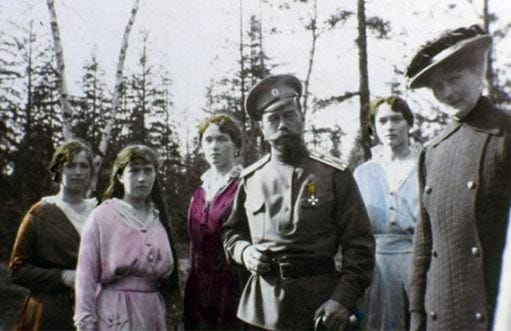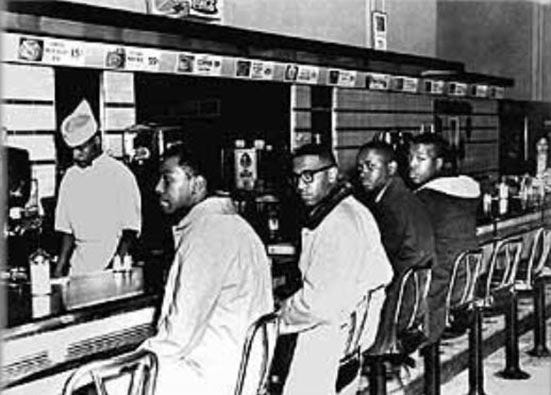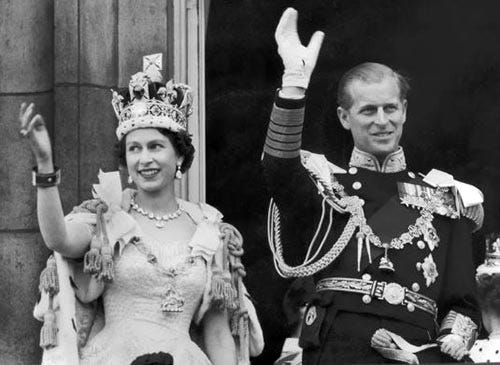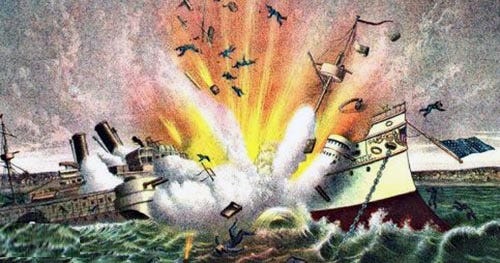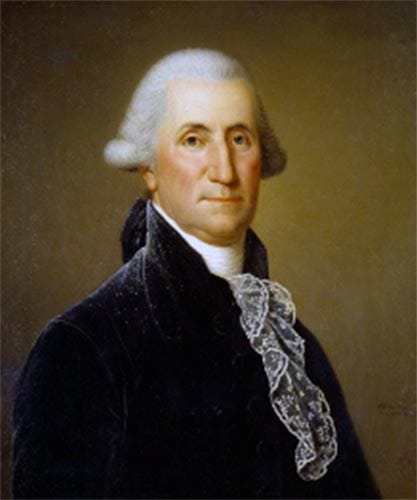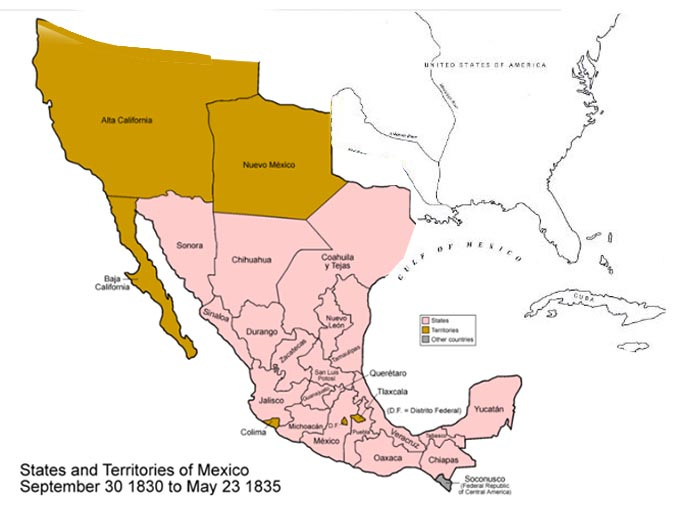❄️ What about February?
Significant events that occurred in February throughout the world. Any guesses what?
THE BIG ONE - Russian February Revolution (1917):
This revolution in Russia led to the abdication of Tsar Nicholas II and the end of the Romanov dynasty, marking a significant turning point in Russian history. The Bolsheviks murdered his family in cold blood.
The Russian Imperial Romanov family (Nicholas II of Russia, his wife Alexandra Feodorovna, and their five children: Olga, Tatiana, Maria, Anastasia, and Alexei) were shot and bayoneted to death] by Bolshevik revolutionaries under Yakov Yurovsky on the orders of the Ural Regional Soviet in Yekaterinburg on the night of 16–17 July 1918 The bodies were taken to the Koptyaki forest, where they were stripped, mutilated with grenades to prevent identification, and buried.
February 1, 1960 - Greensboro Sit-In:
African American college students initiated a sit-in at a segregated Woolworth's lunch counter in Greensboro, North Carolina, sparking a wave of similar protests across the Southern United States and contributing to the momentum of the Civil Rights Movement.
On February 1, 1960, four African American college students from North Carolina Agricultural and Technical State University—Ezell Blair Jr., David Richmond, Franklin McCain, and Joseph McNeil—sat down at the lunch counter inside a Woolworth's store in Greensboro, North Carolina. Despite being refused service, they remained seated, peacefully protesting against the store's policy of segregation.
The sit-in at Woolworth's sparked a wave of similar protests across the Southern United States. Within days, more students, both black and white, joined the sit-in at Woolworth's.
The nonviolent protest gained widespread attention, attracting supporters and drawing condemnation of segregation policies. The sit-ins continued for months, leading to negotiations, boycotts, and, eventually, the desegregation of lunch counters in Greensboro and other cities.
February 4-11, 1945 - The Yalta Conference
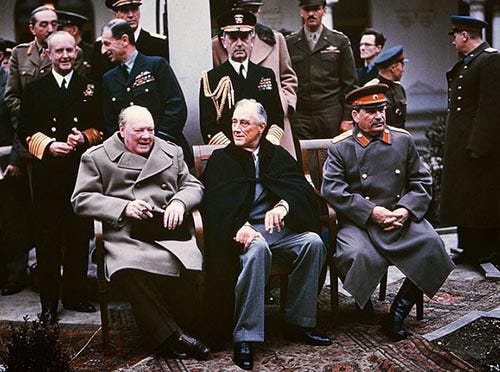
Immediately after the end of WWII the Conference was held from February 4 to 11, 1945, was a crucial meeting between the leaders of the Allied Powers: Franklin D. Roosevelt (United States), Winston Churchill (United Kingdom), and Joseph Stalin (Soviet Union). The conference took place in the Livadia Palace in Yalta, Crimea (Yes it was Russian.) Several key agreements and decisions were made during the conference:
Division of Germany: The Allied leaders discussed the post-war reorganization of Europe. They agreed to divide Germany into four occupied zones, each administered by one of the Allied powers: the United States, the Soviet Union, the United Kingdom, and France.
United Nations: The leaders discussed the establishment of a new international organization to maintain peace and security after the war. They reached an agreement on the structure and purpose of the United Nations, which was founded later in 1945.
Eastern Europe: There were discussions regarding the future of Eastern Europe, particularly the nations that had been occupied by Nazi Germany. Stalin insisted on Soviet influence and control over these countries' governments, which led to concerns about the spread of communism in the region.
Poland: The fate of Poland was a major topic of discussion. The Allies agreed that Poland should have a representative government based on free elections. However, the specifics of this agreement were not fully realized, and Poland eventually fell under Soviet influence, leading to tensions during the Cold War.
Declaration on Liberated Europe: The leaders issued a declaration expressing their commitment to allowing the people of liberated Europe to determine their own governments through free and democratic elections. However, this principle was not fully upheld in practice, particularly in Eastern Europe.
February 6, 1952 - Elizabeth II becomes Queen of England
Following the death of her father, King George VI, Princess Elizabeth ascended to the throne, beginning her reign as Queen Elizabeth II of the United Kingdom and other Commonwealth realms. Not much really to say about this. Yawn! She did live a long time.
February 15, 1898 - USS Maine Explosion
The USS Maine, an American battleship, exploded in Havana Harbor, Cuba, leading to the Spanish-American War, which ultimately resulted in the United States gaining control over territories such as Puerto Rico, Guam, and the Philippines.
February 1898, a United States battleship, the USS Maine, exploded in the then Spanish-controlled Havana Harbor, now liberated and under the control of our Cuban comrades. The explosion, publicized with fervor by media mogul William Randolph Hearst and his bellicose cronies, was then the reason the United States to go to war with the Spanish Empire.
A declassified CIA document written March 13, 1962, outlines Operation Northwoods, a plan for a U.S. attack on Cuba following its 1959 Revolution.
On page 11, CIA directly uses the phrase “a ‘Remember the Maine’ incident,” and follows with plans to intentionally blow up a U.S. ship to start a desired “war on communism.” Cuba holds as official history that the 1898 incident was a planned, false-flag operation. We, of course, do not.
February 21-25, 1972 - Nixon's Visit to China
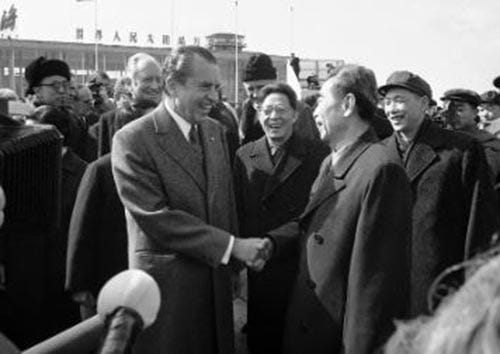
President Richard Nixon visited China, marking a significant thaw in relations between the United States and the People's Republic of China, which had been estranged since the Chinese Civil War.
Nixon's visit to China marked a significant turning point in international relations. It led to the normalization of diplomatic relations between the United States and China, which had been estranged for over two decades.
This diplomatic breakthrough not only reshaped the dynamics of the Cold War but also had far-reaching implications for global politics, trade, and security in the decades that followed.
This raproachment because of Nixon’s visit brought about the subsequent de-industrialization of America, as corporations abandoned their American factories. American industries closed down en mass, laid off workers to and created the American Rust Belt.
It came back to haunt them as China became an economic powerhouse and has developed significant wealth and power that American is determined to stop, even threatening war.
February 22, 1732 - George Washington's Birthday
George Washington, the first President of the United States, was born on this day. Although his actual birthdate was February 22 under the Julian calendar, it is celebrated on February 22 or the third Monday in February under the Gregorian calendar.
Aside from beating the British, he refused being made ruler of America by only accepting one term as President, setting a precedent that has lasted to this day for limited Presidential terms.
February 25, 1836 - Battle of the Alamo Begins
During the Texas Revolution, the Battle of the Alamo commenced in San Antonio, Texas, between Texian (Texas settlers) and Mexican forces, ultimately resulting in a Mexican victory but inspiring further Texian resistance.
The Mexican-American War, which occurred between 1846 and 1848, had several underlying causes.
One primary cause was the dispute over the annexation of Texas by the United States in 1845. Mexico, which had never recognized Texas' independence following the Texas Revolution of 1836, considered the annexation an act of aggression.
Additionally, there were territorial disputes between the two countries, particularly regarding the border between Texas and Mexico. The United States claimed the border was the Rio Grande, while Mexico insisted it was the Nueces River further north. This disagreement led to tensions and skirmishes along the border.
Economic interests also played a role. The United States sought to expand westward and saw territories like California, New Mexico, and Arizona as valuable for trade and resources. Mexico's control over these territories stood in the way of American expansionism.
Moreover, there were cultural and ideological differences between the two nations. Manifest Destiny, the belief that the United States was destined to expand across the continent, fueled American ambitions for westward expansion, including into Mexican-held territories.
These factors, along with various political and diplomatic maneuvers, ultimately culminated in the outbreak of war between the United States and Mexico in 1846.
It’s ironic that now we have a deluge of Mexican refugees flooding what used to be Mexico. Maybe we need to give back Texas. They don’t like being part of the USA anyway, and the New Texas if would be a great place for new previous owners.





